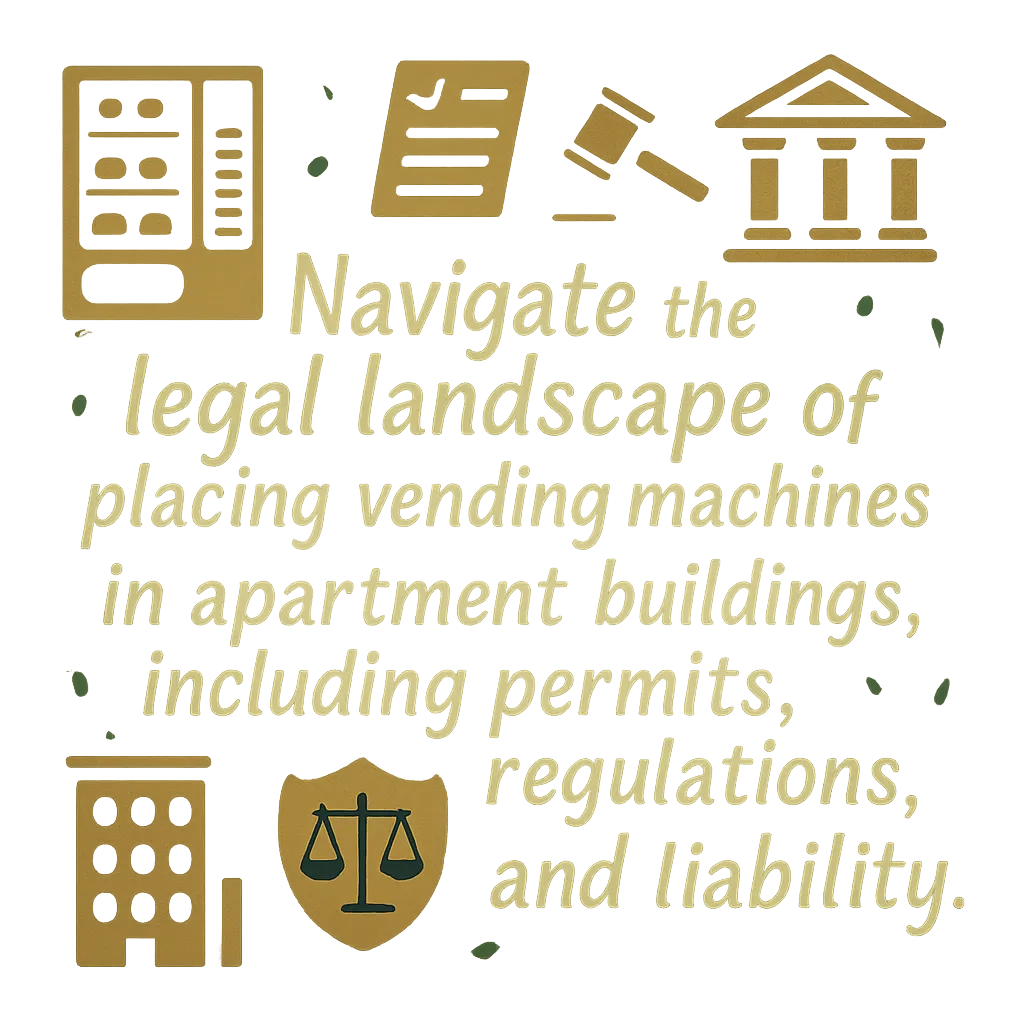The introduction of vending machines into residential properties, such as apartment buildings and condominiums, requires careful consideration of various legal and regulatory factors. Property managers and owners must ensure that these amenities enhance the resident experience without inadvertently creating legal challenges. This involves understanding local ordinances, ensuring accessibility, and establishing clear contractual agreements.
One of the first steps is to investigate local business licensing and zoning requirements. Many municipalities require specific permits for operating vending machines, even within private residential common areas. These permits often cover general business operation, as well as adherence to health and safety standards, particularly for food-grade products. Understanding these upfront can prevent future penalties or forced removal of machines. Comprehensive vending contracts for property managers are crucial, detailing terms and responsibilities. Property managers will also benefit from exploring Custom Vending Options for Multifamily Properties to tailor their offerings legally and practically.
Navigating Accessibility and Liability
Accessibility is a significant legal consideration. Vending machines, like all public amenities, must comply with the Americans with Disabilities Act (ADA). This means ensuring machines are reachable for individuals using wheelchairs, have clear operational instructions, and offer accessible payment methods. Beyond physical access, considerations for pathways to the machines should also be made. For more on this, check out how Are Vending Machines ADA Compliant?
Liability is another critical area. A detailed vending contract should clearly define who is responsible in the event of an accident or machine malfunction. Typically, the vending operator bears product liability and machine maintenance responsibility. However, the property owner may still carry premises liability. Adequate insurance coverage for both parties is essential to protect against potential claims, from slip-and-falls around the machine to product-related illnesses.
Operational Compliance and Resident Rights
Operational aspects also have legal implications. Noise levels from cooling units, particularly in machines located near residential units, must adhere to local noise ordinances. Product selection needs to be scrutinized to avoid age-restricted items or products that might conflict with community policies. Furthermore, if vending machines incorporate surveillance technology, property management must be transparent with residents, often through clear signage, to comply with privacy laws.
Ensuring that vending services align with the property's overall operational guidelines and resident agreements is paramount. Clear communication with residents about the presence and policies surrounding vending machines can prevent disputes. While vending can provide a valuable amenity, especially when considering AI Vending Coolers for Apartments, proactive engagement with legal requirements is key to a successful, problem-free implementation.

